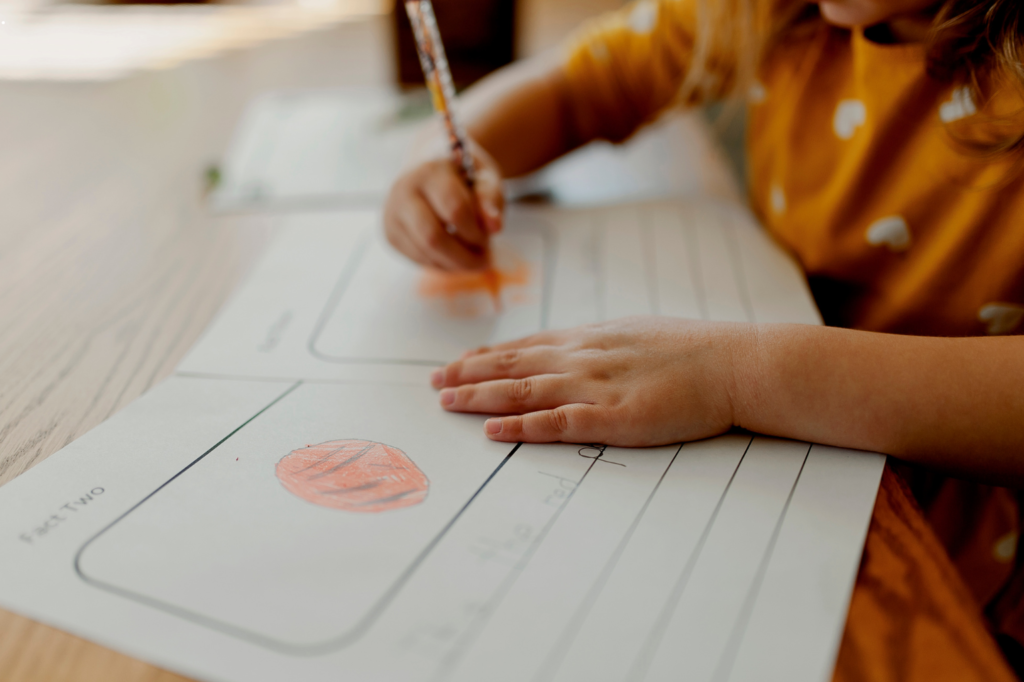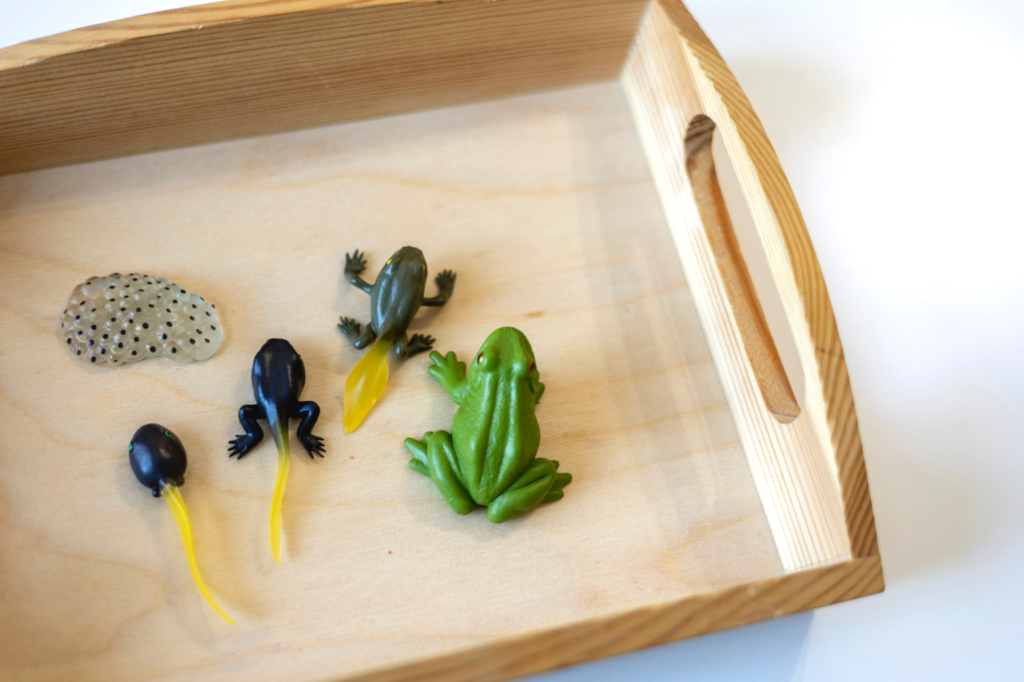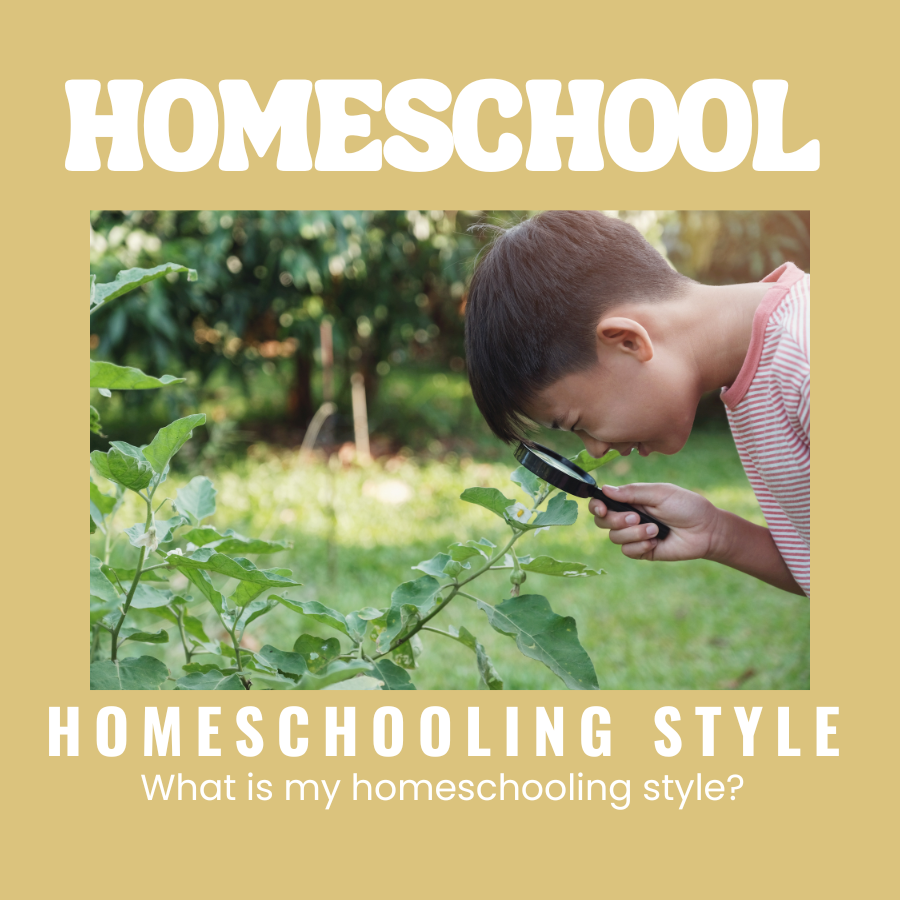If I am honest, the question, what is your homeschool style produced a little stress in my life. It feels like every article I read said something along the lines of, you must decide on a homeschool style to start. While it is important to get an idea of what style will fit your family best, it isn’t something that must be set in stone before you start or that it even has to stay that same style throughout the year. There are many great attributes to each style. In my opinion (take it or leave it) there is something beautiful in being able to adapt to fit your families needs each day/season. As much as I would like to say I have nailed this, I still have a lot of work to do. Because of my teaching background, I am more of a traditional style. Speaking of traditional, lets start there…
TRADITIONAL
This style is the more formal style. It will often replicate what is seen inside the public schools. There are textbooks and workbooks involved in most subject areas. There are often, but not always, a set schedule. Structure is important to traditional homeschoolers.

CHARLOETT MASON
This is a philosophy that focuses on the “whole child”. Simply put, this means that this approach not only focuses on the academics but the social, emotional, and physical needs of a child. This sounds great, right, but what does this look like? This method is directed to students’ interests. These lessons will be less formal. Art, music, and nature will be found in many of these lessons. Most lessons will be done orally where you, the parent will read from “living books”. These lessons will be more hands on and little to no worksheets.

UNSCHOOLING
This method is the complete opposite of traditional learning. This method is centered around students’ interest. Students will lead this learning. The role of the parent would not be to teach the child. The role of the parent would be to listen to the child’s interest and create opportunities for that child to pursue those interests. Parents or society does not decide what these students learn. There are not many worksheets that will be found in this method but what you will find is learning through everyday experiences. If a child’s interests are plants, you will see students in the garden planting, discussing plants, dissecting plants, and studying plants, learning through everyday life.

UNIT STUDIES
Unit studies are lessons that are based around one theme. Students are often times the decider of those themes. For example, if students are interested in frogs, all subjects will be centered around a frog theme. For reading, students might read The Frog and Toad and incorporate the standards they want to teach through that book. Some examples could include, characters, setting, plot, retelling, or comprehension. For math, students may use frogs leaping on lily pads to skip count by fives. Science could include talking about the life cycles of frogs. During social studies you might study different parts of the world and what frogs are found there.

MONTESSORI
This type of homeschool focuses on real word activities. Montessori focuses on the whole child as well. This approach give tools instead of toys. Instead of parents buying a play kitchen, students will learn through the real kitchen. There are seven principles that Montessori follows:
-play is work
– independence
– prepared environment
– hands on learning
– observation
– respect
– freedom within limits

ECELCTIC
This approach takes bits and pieces from each style and puts them together for a whole learning experience. This works well for multiple child families. You will see eclectic families using different methods for different subjects/different children.
This is certainly not all the different types of styles but this is what I have found to be the most popular.
You can take a free homeschool style quiz at https://homeschoolon.com/the-homeschool-style-quiz/
I stated at the beginning of this article that it isn’t crucial to nail down one specific homeschooling style but it is important to at least have an idea on where you may fall. This is important when looking for curriculum, which we will talk about next time!
If you have already decided on a homeschool style, comment below what it is and what is your favorite thing about the style you picked.
*Know that what I put in my blogs will be my OPINION. This means you don’t have to agree with everything that I say. The beauty of homeschooling is that you get to research and decide what works well for your family. My goal for these blogs are to give you facts to help you begin/continue your homeschooling journey. With that being said, my opinions will occasionally make its way into certain blogs. Please know that if we don’t agree, that is totally fine! I still love ya and pray that your homeschool journey will be a success!*

Leave a Reply